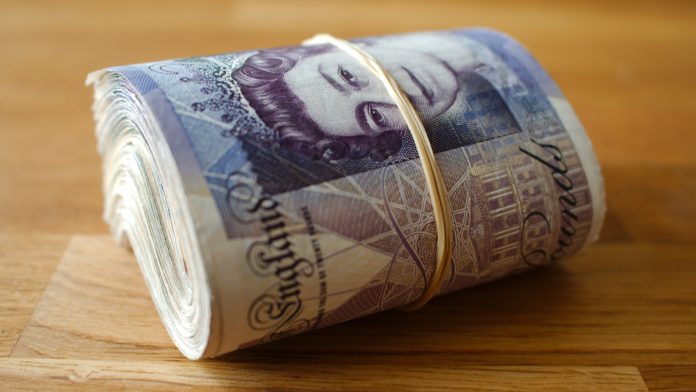- Pound (GBP) rises ahead of inflation data
- Jobs data was mixed, unemployment held steady
- Euro (EUR) slips after strong gains yesterday on ECB rumors
- Consumer confidence set to fall further
The Pound Euro (GBP/EUR) exchange rate is rising, paring losses from the previous session; the pair fell -0.45% on Tuesday, settling at €1.1725, after trading in a range between €1.1707 – €1.1787. At 05:45 UTC, GBP/EUR trades +0.18% at €1.1742.
The pound edged lower yesterday on mixed UK jobs data. On the one hand, unemployment stayed steady at 3.8%, as the number of workers added to the workforce rose by almost 300,000, around 130,000 more than forecast. The number of people claiming unemployment benefits dropped by 20,000 as well.
Wages ticked higher to 4.3%. However, wages in real terms, taking into account inflation, fell by the most on record, fuelling the cost of living crisis.
Today attention will turn to the UK inflation reading, as measured by the consumer price index. UK CPI is expected to rise to 9.2% year on year in June, up from 9.1%. Core inflation which excludes more volatile items such as food and fuel, is expected to tick lower to 5.8% from 5.9%.
Hot inflation will pressure the Bank of England to keep hiking interest rates at the next meeting in August, marking the sixth straight hike.
The euro rose in the previous session, boosted by a report that the European Central Bank could raise interest rates by 50 basis points when its meets on Thursday. The central bank had initially committed to hiking rates by 25 basis points.
However, the macro environment has changed since then, with inflation reaching a new record high. Yesterday inflation was confirmed at 8.6% annually in June.
Today attention is on German producer price inflation, which measures inflation at the factory gate level. Analysts expect PPI to continue rising to 33.9%, suggesting that consumer prices could keep growing.
European consumer confidence data is also due to be released and is expected to tick lower to 24.5 as prices rise and growth slows.





